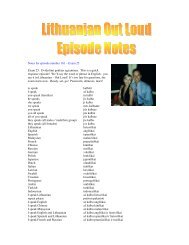Lithuanian Out Loud 121 Beg - Ziureti To Look At ... - Libsyn
Lithuanian Out Loud 121 Beg - Ziureti To Look At ... - Libsyn
Lithuanian Out Loud 121 Beg - Ziureti To Look At ... - Libsyn
Create successful ePaper yourself
Turn your PDF publications into a flip-book with our unique Google optimized e-Paper software.
<strong>Lithuanian</strong> <strong>Out</strong> <strong>Loud</strong> <strong>121</strong> <strong>Beg</strong> - <strong>Ziureti</strong> <strong>To</strong> <strong>Look</strong> <strong>At</strong> - Voicemail<br />
206-202-4745<br />
Hi there, I’m Jack and welcome back to <strong>Lithuanian</strong> <strong>Out</strong> <strong>Loud</strong>.<br />
Just a quick note before we get started, Agnė iš Vilniaus has<br />
honored us with another excellent contribution. This is probably<br />
the best work she’s ever done on this podcast. Thanks for all<br />
your hard work Agnė!<br />
Also, I did the math and in 13 months we’ve done over nine<br />
episodes of <strong>Lithuanian</strong> <strong>Out</strong> <strong>Loud</strong> a month. Most of the time I’m<br />
trying to put out three or four a week, but I rarely have that much<br />
time. For the next few months we need to cut way back on our<br />
frequency. It’s just that we both have many other projects that have been neglected and we need to put<br />
some time into them.<br />
But, don’t worry, we’re still working on dozens of episodes on paper and we have about 15 recorded. So,<br />
we aren’t quitting, we just need to free up some time for other things. We’re not going to stop, we’re just<br />
going to slow down the pace a bit. Once these other projects have been tended to, we’ll try to put out<br />
dozens of new episodes for you. Alright, on with the show and here’s Agnė. Take it away, Agnė!<br />
Hi, I am Agnė, and welcome back for some more <strong>Lithuanian</strong> phrases. If you remember, the last few times I<br />
taught you some phrases for angry and awful things. So it is time to learn some nicer expressions :)<br />
If you want to compliment someone for something which is beautiful or nice, you could say: gražus kaip<br />
reta... or graži kaip reta... literally; rare beauty.<br />
You could use it either for a person or for a thing. Also, you can say graži kaip lėlė - as pretty as a doll, but<br />
be careful. If you use this in reference to, for example, a woman with too much make-up or a man who's<br />
dressed a little too fine, you'll sound sarcastic.<br />
Let's learn some words:<br />
Retas - rare (masculine)<br />
Reta - rare (feminine)<br />
Graži - nice, beautiful, pretty (feminine)<br />
Gražus - nice, beautiful, handsome (masculine)<br />
Viršelis - a cover<br />
Knyga - a book<br />
Žiedas - a ring, also - a blossom<br />
Auksas - gold<br />
Gėlė - a flower<br />
Dukra - a daughter<br />
Dukrelė - a daughter, using the diminutive<br />
Lėlė - a doll<br />
Lėlytė - a doll in the diminutive
Let's repeat one time slowly:<br />
Graži kaip lėlė - as beautiful as a doll - referring to a feminine noun<br />
Gražus kaip lėlė - as beautiful as a doll - referring to a masculine noun<br />
Graži kaip reta - of a rare beauty, referring to a feminine noun<br />
Gražus kaip reta - of a rare beuaty, referring to a masculine noun<br />
Now let's go over some examples:<br />
Ta mergina graži kaip lėlė - That lady is as beautiful as a doll<br />
Man nepatinka vaikinai gražūs kaip lėlės - I don't like guys who are as pretty as dolls. In English this<br />
would loosely translate as, I don't like pretty-boys.<br />
These two examples could be used sarcastically, so be careful.<br />
But, if you want to use a diminutive form, it could sound like a compliment.<br />
For example:<br />
Tavo dukrelė graži kaip lėlytė - Your little daughter is as beautiful as a little doll<br />
Knygos viršelis gražus kaip reta - the bookcover is of a rare beauty<br />
Šitas aukso žiedas gražus kaip reta - this golden ring is of a rare beauty<br />
Diena graži kaip reta - the day is of a rare beauty...<br />
Ši gėlė graži kaip reta - this flower is of a rare beauty...<br />
As the word order in the <strong>Lithuanian</strong> language is not important, you could also say it like this:<br />
Gražus kaip reta knygos viršelis...<br />
Gražus kaip reta aukso žiedas...<br />
Gražus kaip reta šitas aukso žiedas...<br />
Graži kaip reta diena...<br />
Graži kaip reta gėlė...<br />
Graži kaip reta ši gėlė...<br />
It just depends on what you want to emphasize more. It will also go together with your intonation, so you<br />
can play with it and enjoy :)<br />
See you next time! Make your day of a rare beauty!<br />
Hi there, I’m Jack and I’m Raminta and welcome back to <strong>Lithuanian</strong> <strong>Out</strong> <strong>Loud</strong> where we offer the world<br />
the <strong>Lithuanian</strong> language.<br />
According to Wikipedia, the <strong>Lithuanian</strong> national plant is rue (rūta). A bride traditionally wears a little<br />
crown made of rue, which is a symbol of her life as an unmarried young woman. During the wedding the<br />
crown is burned, symbolizing the loss of careless childhood and entrance into the world of adulthood.<br />
<strong>To</strong>day we’ll go over the <strong>Lithuanian</strong> verb žiūrėti – to look, to look at, to watch, to stare at, to gaze at. Some<br />
related words are;<br />
žiūronai binoculars<br />
spyglass, telescope žiūronas<br />
spectator, onlooker žiūrovas, žiūrovė<br />
spectators, onlookers žiūrovai<br />
Here are žiūrėti and nežiūrėti conjugated in the present tense;<br />
to look at žiūrėti<br />
I look at aš žiūriu
you look at tu žiūri<br />
he looks at jis žiūri<br />
she looks at ji žiūri<br />
we look at mes žiūrime<br />
you look at (jūs) jūs žiūrite<br />
you all look at (jūs) jūs žiūrite<br />
they look at (mm/mf) jie žiūri<br />
they look at (ff) jos žiūri<br />
to not look at nežiūrėti<br />
I don’t look at aš nežiūriu<br />
you don’t look at tu nežiūri<br />
he doesn’t look at jis nežiūri<br />
she doesn’t look at ji nežiūri<br />
we don’t look at mes nežiūrime<br />
you don’t look at (jūs) jūs nežiūrite<br />
you all don’t look at (jūs) jūs nežiūrite<br />
they don’t look at (mm/mf) jie nežiūri<br />
they don’t look at (ff) jos nežiūri<br />
here are some examples using the infinitive of the verb<br />
I wan’t to watch the film aš noriu žiūrėti filmą<br />
he can watch this program jis gali žiūrėti šią programą<br />
can’t you look? ar gali nežiūrėti?<br />
we cannot watch this film negalime nežiūrėti šio filmo<br />
we cannot watch this concert negalime nežiūrėti šio koncerto<br />
aš<br />
I’m watching the movie aš žiūriu filmą<br />
I’m looking at the album aš žiūriu albumą<br />
I’m looking at the mountains aš žiūriu į kalnus<br />
I’m not watching the film aš nežiūriu filmo<br />
I’m not looking at the album aš nežiūriu albumo<br />
I’m not looking at the mountains aš nežiūriu į kalnus<br />
tu<br />
where are you looking? kur tu žiūri?<br />
are you looking at the road? ar tu žiūri į kelią?<br />
are you looking at the photograph? ar tu žiūri į nuotrauką?<br />
are you looking at him? ar tu žiūri į jį?<br />
are you looking at her? ar tu žiūri į ją?<br />
you aren’t looking at the road tu nežiūri į kelią<br />
you aren’t looking at the photo tu nežiūri į nuotrauką<br />
you aren’t looking at him, right? tu nežiūri į jį, taip?<br />
jis<br />
he is looking at the sea jis žiūri į jūrą<br />
he is looking at the sky jis žiūri į dangų<br />
he is looking at the auto jis žiūri į automobilį<br />
he is not looking at the sea jis nežiūri į jūrą<br />
he is not looking at the sky jis nežiūri į dangų<br />
he is not looking at the auto jis nežiūri į automobilį<br />
ji<br />
she is looking at the performance ji žiūri spektaklį
she is looking at the watch ji žiūri į laikrodį<br />
she is looking at the man ji žiūri į vyrą<br />
she’s not looking at the play ji nežiūri spektaklio<br />
she is not looking at the watch ji nežiūri į laikrodį<br />
she is not looking at the man ji nežiūri į vyrą<br />
mes<br />
we’re looking and we don’t see mes žiūrime ir nematome<br />
we’re looking at the black sky mes žiūrime į juodą dangų<br />
we’re looking at the fox mes žiūrime į lapę<br />
we’re not looking at the corpse mes nežiūrime į lavoną<br />
we’re not looking at the blood mes nežiūrime į kraują<br />
we’re not looking at the rats mes nežiūrime į žiurkes<br />
jūs<br />
you are looking at the trees jūs žiūrite į medžius<br />
are you are looking at the photo? ar jūs žiūrite į nuotrauką?<br />
you are looking at the future jūs žiūrite į ateitį<br />
you’re not looking at it jūs nežiūrite į tai<br />
you’re not looking at it seriously jūs nežiūrite į tai rimtai<br />
you are not looking at the photo jūs nežiūrite į nuotrauką<br />
why don’t you look at me? kodėl nežiūrite į mane?<br />
jūs (plural as in you all)<br />
you often look outside jūs dažnai žiūrite į lauką<br />
(let’s go outside! – einame į lauką! - Raminta says this to her dog,<br />
the pug Antik and he goes crazy with excitement when he hears it)<br />
you often look at the door jūs dažnai žiūrite į duris<br />
you often look at the window jūs dažnai žiūrite į langą<br />
you don’t watch television jūs nežiūrite televizoriaus<br />
you don’t look at me jūs nežiūrite į mane<br />
you never look at me jūs niekada nežiūrite į mane<br />
jie (m/m or m/f group)<br />
they are looking at the stars jie žiūri į žvaigždes<br />
they are looking at the moon jie žiūri į mėnulį<br />
they are not looking at the stars jie nežiūri į žvaigždes<br />
they are not looking at the moon jie nežiūri į mėnulį<br />
they are looking at the tree jie žiūri į medį<br />
they are not looking at the tree jie nežiūri į medį<br />
jos<br />
they are looking at the house jos žiūri į namą<br />
they are looking at the spider jos žiūri į vorą<br />
they are looking at the dog jos žiūri į šunį<br />
they are not looking at the house jos nežiūri į namą<br />
they are not looking at the spider jos nežiūri į vorą<br />
they are not looking at the dog jos nežiūri į šunį<br />
imperative<br />
look what she’s doing! žiūrėk, ką ji daro!<br />
look at the mountains! žiūrėkite į kalnus!<br />
let’s look at what’s going to happen! žiūrėkime kas bus!
don’t look at the blood! nežiūrėk į kraują!<br />
don’t look at this room! nežiūrėkite į tą kambarį!<br />
let’s not look at this movie! nežiūrėkime šio filmo!<br />
<strong>Lithuanian</strong> <strong>Out</strong> <strong>Loud</strong> 0122 <strong>Beg</strong> - Simtas Dvi Taures 102 Glasses - Voicemail 206-202-4745<br />
Hi there, I’m Jack and I’m Raminta and welcome back to <strong>Lithuanian</strong> <strong>Out</strong> <strong>Loud</strong> where we offer the world<br />
the <strong>Lithuanian</strong> language. <strong>To</strong>day we’re in the new month of October which in <strong>Lithuanian</strong> is spalis. In Latin<br />
octo means eight. In the old Roman calendar October was the eighth month. In <strong>Lithuanian</strong> this month is<br />
spalis, named after spaliai – flax. In the month of spalis, flax is harvested.<br />
According to the free encyclopedia, Wikipedia, Aušrinė is the Morning Star, a feminine deity in the old<br />
<strong>Lithuanian</strong> religion. Some experts reconstruct her as the goddess of beauty, youth and health, and the queen<br />
of all stars. Aušrinė's sisters are other stars: Vakarinė, the evening Venus, who makes the bed for Saulė,<br />
Indraja - Jupiter, Sėlija - Saturn, Žiezdrė - Mars and Vaivora - Mercury.<br />
pradėkime, let’s get started<br />
With this episode we’ll continue working on combining numbers with nouns. Any number that ends in<br />
number two through nine causes the noun to become plural. The exceptions to this are the numbers 12-19.<br />
We’ll do those on an upcoming episode.<br />
prašom pakartoti, please repeat…<br />
two sisters dvi seserys<br />
three daughters trys dukterys<br />
four armchairs keturi foteliai<br />
five horses penki arkliai<br />
six televisions šeši televizoriai<br />
seven days septynios dienos<br />
eight glasses aštuonios taurės<br />
nine countries devynios šalys<br />
22 songs dvidešimt dvi dainos<br />
23 women dvidešimt trys moterys<br />
24 museums dvidešimt keturi muziejai<br />
25 bowls dvidešimt penki dubenys<br />
26 people dvidešimt šeši asmenys<br />
27 people dvidešimt septyni žmonės<br />
28 hotels dvidešimt aštuoni viešbučiai<br />
29 letters dvidešimt devyni laiškai<br />
32 birds trisdešimt du paukščiai<br />
33 bicycles trisdešimt trys dviračiai<br />
34 trees trisdešimt keturi medžiai<br />
35 pigeons trisdešimt penki balandžiai<br />
45 rooms keturiasdešimt penki kambariai<br />
47 things keturiasdešimt septyni daiktai<br />
56 songs penkiasdešimt šešios dainos<br />
67 armchairs šešiasdešimt septyni fotelai<br />
78 horses septyniasdešimt aštuoni arkliai<br />
85 objects aštuoniasdešimt penki dalykai<br />
89 televisions aštuoniasdešimt devyni televizoriai<br />
94 days devyniasdešimt keturios dienos<br />
102 pizzas vienas šimtas dvi picos arba šimtas dvi picos<br />
123 countries vienas šimtas dvidešimt trys šalys<br />
135 tables vienas šimtas trisdešimt penki stalai<br />
146 songs vienas šimtas keturiasdešimt šešios dainos
157 women vienas šimtas penkiasdešimt septynios moterys<br />
168 rooms vienas šimtas šešiasdešimt aštuoni kambariai<br />
179 bowls vienas šimtas sepyniasdešimt devyni dubenys<br />
184 people vienas šimtas aštuoniasdešimt keturi žmonės<br />
192 baskets vienas šimtas devyniasdešimt du krepšiai<br />
203 hotels du šimtai trys viešbučiai<br />
227 things du šimtai dvidešimt septyni daiktai<br />
1,007 letters vienas tūkstantis septyni laiškai arba tūkstantis septyni laiškai<br />
3,439 pigeons trys tūkstančiai keturi šimtai trisdešimt devyni balandžiai<br />
5,237 birds penki tūkstančiai du šimtai trisdešimt septyni paukščiai<br />
6,883 bicycles šeši tūkstančiai aštuoni šimtai aštuoniasdešimt trys dviračiai<br />
7,527 tables septyni tūkstančiai penki šimtai dvidešimt septyni stalai<br />
9,968 trees devyni tūkstančiai devyni šimtai šešiasdešimt aštuoni medžiai<br />
<strong>Lithuanian</strong> <strong>Out</strong> <strong>Loud</strong> 0123 <strong>Beg</strong> - Trys Simtai Dvylika Picu 312 Pizzas - Voicemail 206-202-4745<br />
Hi there, I’m Raminta and I’m Jack and welcome back to <strong>Lithuanian</strong> <strong>Out</strong> <strong>Loud</strong> where we offer the world<br />
the <strong>Lithuanian</strong> language. <strong>To</strong>day we’re in the month of October which in <strong>Lithuanian</strong> is spalis.<br />
The <strong>Lithuanian</strong> state flag is different from the national flag of yellow, green and red. The state flag has the<br />
national symbol of the Vytis on a red background. It’s a beautiful flag and it has a longer history than the<br />
tricolor but it was not chosen as the national flag mainly because it would have been difficult to recreate the<br />
design.<br />
pradėkime, let’s get started<br />
Previously we worked on numbers that end in one, numbers that end in zero, and numbers that end in two<br />
through nine. Numbers 11 through 19 or numbers that end in 11 through 19 are similar to numbers that end<br />
in zero. Numbers that end in 11 through 19 use the plural genitive.<br />
prašom pakartoti, please repeat…<br />
11 sisters vienuolika seserų<br />
12 daughters dvylika dukterų<br />
13 uncles trylika dėdžių<br />
14 horses keturiolika arklių<br />
15 televisions penkiolika televizorių<br />
16 days šešiolika dienų<br />
17 glasses septyniolika taurių<br />
18 countries aštuoniolika šalių<br />
19 tables devyniolika stalų<br />
111 pizzas šimtas vienuolika picų<br />
112 women šimtas dvylika moterų<br />
113 museums šimtas trylika muziejų<br />
114 bowls šimtas keturiolika dubenų<br />
115 people šimtas penkiolika žmonių<br />
116 people šimtas šešiolika asmenų<br />
117 hotels šimtas septyniolika viešbučių<br />
118 letters šimtas aštuoniolika laiškų<br />
119 birds šimtas devyniolika paukščių<br />
211 bicycles du šimtai vienuolika dviračių<br />
212 trees du šimtai dvylika medžių<br />
213 pigeons du šimtai trylika balandžių<br />
214 tables du šimtai keturiolika stalų<br />
215 songs du šimtai penkiolika dainų
216 women du šimtai šešiolika moterų<br />
217 museums du šimtai septyniolika muziejų<br />
218 bowls du šimtai aštuoniolika dubenų<br />
219 people du šimtai devyniolika žmonių<br />
311 people trys šimtai vienuolika asmenų<br />
312 pizzas trys šimtai dvylika picų<br />
313 songs trys šimtai trylika dainų<br />
314 armchairs trys šimtai keturiolika fotelių<br />
315 horses trys šimtai penkiolika arklių<br />
316 televisions trys šimtai šešiolika televizorių<br />
317 days trys šimtai septyniolika dienų<br />
318 glasses trys šimtai aštuoniolika taurių<br />
319 countries trys šimtai devyniolika šalių<br />
<strong>Lithuanian</strong> <strong>Out</strong> <strong>Loud</strong> 0124 <strong>Beg</strong> - Daryti <strong>To</strong> Do - Voicemail 206-202-4745<br />
Hi there, I’m Jack and I’m Raminta and welcome back to <strong>Lithuanian</strong> <strong>Out</strong> <strong>Loud</strong> where we offer the world<br />
the <strong>Lithuanian</strong> language. <strong>To</strong>day we’re in the month of October which in <strong>Lithuanian</strong> is spalis.<br />
According to Radio Vilnius: News & Current Affairs, sales of bicycles are up in Lithuania. There are<br />
government efforts towards creating bicycle lanes in cities. However, bicycles are not so ingrained in the<br />
culture so as to make bike riding safe. Cars still rule the roads. The European Union gave Lithuania funds<br />
for creating a bicycle safe infrastructure but the program was stopped and 10 million litas will be returned.<br />
Vilnius city officials say they’ll implement the program eventually in their own time but there are no plans<br />
to put this into motion.<br />
<strong>To</strong>day we’ll go over the <strong>Lithuanian</strong> verb daryti – to do, to make, to open, to close. Here are daryti and<br />
nedaryti conjugated in the present tense.<br />
to do daryti<br />
I do aš darau<br />
you do (tu) tu darai<br />
he does jis daro<br />
she does ji daro<br />
we do mes darome<br />
you do (jūs) jūs darote<br />
you all do jūs darote<br />
they do (jie) jie daro<br />
they do (jos) jos daro<br />
to not do nedaryti<br />
I do not aš nedarau<br />
you do not (tu) tu nedarai<br />
he does not jis nedaro<br />
she does not ji nedaro<br />
we do not mes nedarome<br />
you do not (jūs) jūs nedarote<br />
you all do not jūs nedarote<br />
they do not (jie) jie nedaro<br />
they do not (jos) jos nedaro<br />
homework/schoolwork namų darbai<br />
housework namų ruošos darbai<br />
infinitive
I have to do homework aš turiu daryti namų darbus<br />
I have to do housework aš turiu daryti namų ruošos darbus<br />
she can do that ji gali tai daryti<br />
I do not have to do the homework aš neturiu daryti namų darbų<br />
I don’t have to do the housework aš neturiu daryti namų ruošos darbų<br />
she cannot do that ji negali to daryti<br />
aš<br />
I do that in the mornings aš tai darau rytais<br />
I do that in the afternoons aš tai darau dienomis<br />
I do that in the evenings aš tai darau vakarais<br />
I don’t do that in the mornings aš to nedarau rytais<br />
I don’t do that in the afternoons aš to nedarau dienomis<br />
I don’t do that in the evenings aš to nedarau vakarais<br />
tu<br />
what are you doing tonight? ką tu darai šiandien vakare?<br />
what are you doing in the morning? ką tu darai ryte?<br />
what are you doing the day after tomorrow? ką tu darai poryt?<br />
why do you not do anything? kodėl tu nieko nedarai? nežinau<br />
you can do it, but you don’t do it tu gali tai padaryti, bet tu to nedarai<br />
you don’t do any miracles tu nedarai jokių stebuklų<br />
jis<br />
what is he doing? ką jis daro?<br />
I don’t know what he’s doing nežinau ką jis daro<br />
what is Jonas doing here? ką Jonas čia daro?<br />
what is Marius doing and how? ką Marius daro ir kaip jis daro?<br />
he doesn’t do any mistakes jis nedaro jokių klaidų<br />
he doesn’t do anything jis nedaro nieko<br />
he doesn’t do a lot jis nedaro daug<br />
ji<br />
she makes me happy ji daro mane laimingą<br />
she does that well ji tai daro gerai<br />
Raminta does everything Raminta daro viską<br />
she doesn’t make you happy ji nedaro tavęs laimingo<br />
she doesn’t do that well ji nedaro tai gerai<br />
Raminta doesn’t do everything Raminta nedaro visko<br />
mes<br />
don’t tell what we’re doing! nesakykite ką mes darome!<br />
we all make mistakes visi mes darome klaidas<br />
we’re doing well mes darome gerai<br />
we’re not doing anything mes nedarome nieko<br />
we’re not making mistakes mes nedarome klaidų<br />
we’re not doing that mes to nedarome<br />
jūs<br />
what do you do on vacation? ką jūs darote per atostogas?<br />
what do you do at work? ką jūs darote darbe?<br />
what do you do on the weekends? ką jūs darote savaitgaliais?<br />
you don’t do your job well nedarote savo darbo gerai<br />
you’re not doing what you need to nedarote to ką turite daryti<br />
you’re not making mistakes nedarot klaidų
jūs<br />
what are you all doing? ką jūs darote?<br />
how do you all do (it)? kaip jūs darote?<br />
how do you all make pizza? kaip jūs darote picą?<br />
why don’t you do that? kodėl jūs to nedarote?<br />
of course, you never do that žinoma, jūs to niekada nedarote<br />
you don’t do anything bad jūs nedarote nieko blogo<br />
jie<br />
what are they doing? ką jie daro?<br />
why are they doing that? kodėl jie tai daro?<br />
I don’t know what they are doing nežinau ką jie daro<br />
what aren’t they doing? ko jie nedaro?<br />
why don’t they do that? kodėl jie to nedaro?<br />
they don’t do that well jie nedaro tai gerai<br />
jos<br />
what are they doing? ką jos daro?<br />
why are they doing that? kodėl jos tai daro?<br />
I don’t know what they are doing nežinau ką jos daro<br />
what aren’t they doing? ko jos nedaro?<br />
why don’t they do that? kodėl jos to nedaro?<br />
they don’t do that well jos nedaro tai gerai<br />
imperative<br />
do it! (tu) daryk!<br />
let’s do it! darykime!<br />
do it! (jūs) darykite!<br />
don’t do it! (tu) nedaryk!<br />
let’s not do it! nedarykime!<br />
don’t do it! (jūs) nedarykite!<br />
<strong>Lithuanian</strong> <strong>Out</strong> <strong>Loud</strong> 0125 - Exam 32 - Voicemail 206-202-4745<br />
Trisdežimt antras egzaminas. This is a quick response episode! We’ll say the word or phrase in English<br />
and you say it in <strong>Lithuanian</strong> – <strong>Out</strong> <strong>Loud</strong>! It’s too late for questions, the exam starts now. Ready, set, go!<br />
Pasiruošti, dėmesio, marš!<br />
and so taip ir<br />
to stay likti<br />
and so she stayed taip ir liko<br />
she stayed to live in America ji liko gyventi Amerikoje<br />
she stayed to live in Lithuania ji liko gyventi Lietuvoje<br />
husband vyras<br />
wife žmona<br />
she stayed to live with her husband ji liko gyventi su savo vyru<br />
he stayed to live with his wife jis liko gyventi su savo žmona<br />
stay healthy lik sveikas<br />
stay healthy lik sveika<br />
in this country šioje šalyje<br />
nationality tautybė<br />
her nationality – <strong>Lithuanian</strong> jos tautybė – lietuvė<br />
her nationality – French jos tautybė – prancūzė<br />
his nationality – Russian jo tautybė – rusas<br />
his nationality – Spanish jo tautybė – ispanas
to work dirbti<br />
edge, border, territory, land kraštas<br />
Justina travels all over the country Justina keliauja po šalį<br />
country šalis<br />
Justina works and travels Justina dirba ir keliauja<br />
to travel keliauti<br />
to travel all over the land keliauti po visą kraštą<br />
to drive around, to ride about važinėti<br />
around, about, all over po (+ accusative)<br />
I’m riding around Vilnius važinėju po Vilnių<br />
I’m driving around Lithuania važinėju po Lietuvą<br />
I’m riding about the city važinėju po miestą<br />
a village, the countryside kaimas<br />
I drive all over the countryside važinėju po kaimą<br />
I’m riding all over Europe važinėju po Europą<br />
we’re driving all over Vilnius važinėjame po Vilnių<br />
to stroll about, to walk about vaikštinėti<br />
I’m walking all over the park vaikštinėju po parką<br />
I’m walking all over the streets vaikštinėju po gatves<br />
I’m walking all over downtown vaikštinėju po miesto centrą<br />
who / which kuria<br />
and so he stayed in England taip ir liko Anglijoje<br />
and so she stayed in Italy taip ir liko Italijoje<br />
she is getting to know the country ji susipažįsta su šalimi<br />
I’m getting to know the country aš susipažįstu su šalimi<br />
In Lithuania I met a lot of interesting people Lietuvoje sutikau daug įdomių žmonių<br />
in Latvia she met a lot of interesting people Latvijoje ji sutiko daug įdomių žmonių<br />
in Estonia he met a lot of interesting people Estijoje jis sutiko daug įdomių žmonių<br />
life gyvenimas<br />
their jų<br />
character būdas<br />
bad temper blogas būdas<br />
good temper geras būdas<br />
<strong>Lithuanian</strong> <strong>Out</strong> <strong>Loud</strong> 0126 - Exam 33 - Voicemail 206-202-4745<br />
Trisdešimt trečias egzaminas. This is a quick response episode! We’ll say the word or phrase in English<br />
and you say it in <strong>Lithuanian</strong> – <strong>Out</strong> <strong>Loud</strong>! It’s too late for questions, the exam starts now. Ready, set, go!<br />
Pasiruošti, dėmesio, marš!<br />
however tačiau<br />
to run bėgti<br />
in time, in due course, eventually laikui bėgant<br />
time laikas<br />
over the years bėgant metams<br />
over the years Justina began to miss Lithuania bėgant metams Justina pradėjo ilgėtis Lietuvos<br />
over the years Justina began to miss her family bėgant metams Justina pradėjo ilgėtis savo šeimos<br />
to begin pradėti<br />
I want to start aš noriu pradėti<br />
let’s begin pradėkime<br />
to become prolonged, to grow longer ilgėtis<br />
long ilgas<br />
to long for, to pine for ilgėtis<br />
to become homesick ilgėtis tėvynės<br />
motherland, fatherland, native land, mother country tėvynė
however, over the years, she began to miss home tačiau, bėgant metams ji pradėjo ilgėtis namų<br />
however, over the years, he began to miss home tačiau, bėgant metams jis pradėjo ilgėtis namų<br />
I long for home aš ilgiuosi namų<br />
intimacy artimas<br />
my fatherland is Lithuania mano tėvynė yra Lietuva<br />
my fatherland is America mano tėvynė yra Amerika<br />
my fatherland is Iraq mano tėvynė yra Irakas<br />
my fatherland is Sweden mano tėvynė Švedija<br />
my fatherland is Croatia mano tėvynė Kroatija<br />
my fatherland is Brazil mano tėvynė Brazilija<br />
particularly, especially ypatingai<br />
sad (male) liūdnas<br />
sad (female) liūdna<br />
she is sad ji yra liūdna<br />
he is sad jis yra liūdnas<br />
she is especially sad ji yra ypatingai liūdna<br />
he is particularly sad jis yra ypatingai liūdnas<br />
the biggest year’s holidays didžiausios metų šventės<br />
Christmas Kalėdos<br />
to go begging kalėdoti<br />
Easter Vėlykos<br />
sacred, holy šventas<br />
to celebrate švęsti<br />
celebration šventimas<br />
<strong>Lithuanian</strong> <strong>Out</strong> <strong>Loud</strong> 0127 <strong>Beg</strong> - Simtas Vienas Litas 101 Litas - Voicemail 206-202-4745<br />
Hi there, I’m Jack and I’m Raminta and welcome back to <strong>Lithuanian</strong> <strong>Out</strong> <strong>Loud</strong> where we offer the world<br />
the <strong>Lithuanian</strong> language.<br />
In a previous episode we went over the <strong>Lithuanian</strong> ten litas or dešimt litų banknote. The twenty litas or<br />
dvidešimt litų bill is decorated with the portrait of Jonas Mačiulis who lived from 1862 to 1932. Jonas<br />
Mačiulis urged the <strong>Lithuanian</strong> people to fight against Russification policies and to fight against the<br />
occupation of Lithuania by Imperial Russia. The reverse side of the bill features the Vytautas the Great<br />
War Museum in Kaunas.<br />
pradėkime, let’s get started<br />
<strong>To</strong>day we’re going to mix all the different endings of numbers in one big review episode using just one<br />
noun. The currency of Lithuania – litas.<br />
Litas is the monetary unit of Lithuania. Ready for a challenge? Here we go.<br />
sėkmės! good luck!<br />
one vienas litas 32 trisdešimt du litai<br />
two du litai 33 trisdešimt trys litai<br />
three trys litai 34 trisdešimt keturi litai<br />
four keturi litai 35 trisdešimt penki litai<br />
five penki litai 36 trisdešimt šeši litai<br />
six šeši litai 37 trisdešimt septyni litai<br />
seven septyni litai 38 trisdešimt aštuoni litai<br />
eight aštuoni litai 39 trisdešimt devyni litai<br />
nine devyni litai 40 keturiasdešimt litų<br />
ten dešimt litų 41 keturiasdešimt vienas litas<br />
11 vienuolika litų 42 keturiasdešimt du litai
12 dvylika litų 49 keturiasdešimt devyni litai<br />
13 trylika litų 50 penkiasdešimt litų<br />
14 keturiolika litų 51 penkiasdešimt vienas litas<br />
15 penkiolika litų 58 penkiasdešimt aštuoni litai<br />
16 šešiolika litų 60 šešiasdešimt litų<br />
17 septyniolika litų 61 šešiasdešimt vienas litas<br />
18 aštuoniolika litų 67 šešiasdešimt septyni litai<br />
19 devyniolika litų 70 septyniasdešimt litų<br />
20 dvidešimt litų 71 septyniasdešimt vienas litas<br />
21 dvidešimt vienas litas 76 septyniasdešimt šeši litai<br />
22 dvidešimt du litai 80 aštuoniasdešimt litų<br />
23 dvidešimt trys litai 81 aštuoniasdešimt vienas litas<br />
24 dvidešimt keturi litai 85 aštuoniasdešimt penki litai<br />
25 dvidešimt penki litai 90 devyniasdešimt litų<br />
26 dvidešimt šeši litai 91 devyniasdešimt vienas litas<br />
27 dvidešimt septyni litai 94 devyniasdešimt keturi litai<br />
28 dvidešimt aštuoni litai 99 devyniasdešimt devyni litai<br />
29 dvidešimt devyni litai 100 šimtas litų<br />
30 trisdešimt litų 101 šimtas vienas litas<br />
31 trisdešimt vienas litas 102 šimtas du litai<br />
<strong>Lithuanian</strong> <strong>Out</strong> <strong>Loud</strong> 0128 <strong>Beg</strong> - Mano Tavo Jo Jos Mine Your His Her - Voicemail 206-202-4745<br />
Mano Tavo Jo Jos - Hi there, I’m Jack and I’m Raminta and welcome back to <strong>Lithuanian</strong> <strong>Out</strong> <strong>Loud</strong> where<br />
we offer the world the <strong>Lithuanian</strong> language.<br />
The <strong>Lithuanian</strong> national flag is the tricolor of yellow, green and red. The yellow represents the golden<br />
fields of <strong>Lithuanian</strong> grain, the green represents the green countryside of Lithuania and red represents the<br />
blood that has been shed on <strong>Lithuanian</strong> soil.<br />
pradėkime, let’s get started<br />
You already know the personal pronouns well; aš, tu, jis, ji, mes, jūs, jie, jos.<br />
<strong>To</strong>day we’ll use the personal pronouns with possession. These are;<br />
my mano<br />
your (tu) tavo<br />
his jo<br />
her jos<br />
our mūsų<br />
your (jūs) jūsų<br />
your (you plural) jūsų<br />
their (m/f or m/m) jų<br />
their (f/f) jų<br />
In previous episodes we worked on possession using kilmininkas or the genitive case. Let’s review some<br />
simple examples.<br />
Vita’s car Vitos mašina<br />
Evaldas’ flat Evaldo butas<br />
The <strong>Lithuanian</strong> language lietuvių kalba<br />
The children’s dog vaikų šuo<br />
vocabulary – žodynas
wallet piniginė<br />
wallet piniginė<br />
passport pasas<br />
passport pasas<br />
whose? kieno?<br />
whose? kieno?<br />
photograph nuotrauka<br />
photograph nuotrauka<br />
friends draugai<br />
friends draugai<br />
male doctor gydytojas<br />
male doctor gydytojas<br />
a song daina<br />
a song daina<br />
now we’ll work on possession using pronouns such as, my car, your flat, his photograph, etcetera.<br />
prašom pakartoti, please repeat…<br />
my car is in Klaipėda mano automobilis yra Klaipėdoje<br />
whose car? kieno automobilis?<br />
my car! mano automobilis!<br />
he has my passport jis turi mano pasą<br />
whose passport? kieno pasas?<br />
my passport! mano pasas!<br />
is your flat in Vilnius? ar tavo butas Vilniuje?<br />
whose flat? kieno butas?<br />
your flat tavo butas<br />
your wallet is in his car tavo piniginė yra jo automobilyje<br />
whose wallet? kieno piniginė?<br />
your wallet tavo piniginė<br />
where is his photograph? kur yra jo nuotrauka?<br />
whose photograph? kieno nuotrauka?<br />
his photograph jo nuotrauka<br />
his daughter lives in London jo duktė gyvena Londone<br />
whose daughter? kieno duktė?<br />
his daughter jo duktė<br />
her car is in the city jos mašina yra mieste<br />
whose car? kieno mašina?<br />
her car jos mašina<br />
her dogs are over there jos šunys yra ten<br />
whose dogs? kieno šunys?<br />
her dogs jos šunys<br />
our taxi is here mūsų taksi yra čia<br />
whose taxi? kieno taksi?<br />
our taxi mūsų taksi<br />
they like our friends jiems patinka mūsų draugai
whose friends? kieno draugai?<br />
our friends mūsų draugai<br />
is your wife <strong>Lithuanian</strong>? ar jūsų žmona lietuvė?<br />
whose wife? kieno žmona?<br />
your wife jūsų žmona<br />
your doctor has a question jūsų gydytojas turi klausimą<br />
whose doctor? kieno gydytojas?<br />
your doctor jūsų gydytojas<br />
we like your song (to a group) mums patinka jūsų daina<br />
whose song? kieno daina?<br />
your song jūsų daina<br />
your bus is leaving (to a group) jūsų autobusas išvažiuoja<br />
whose bus? kieno autobusas?<br />
your bus jūsų autobusas<br />
their daughter speaks <strong>Lithuanian</strong> (m/f m/m) jų duktė kalba lietuviškai<br />
whose daughter? kieno duktė?<br />
their daughter jų duktė<br />
their teacher is American (m/f m/m) jų mokytoja yra amerikietė<br />
whose teacher? kieno mokyotoja?<br />
their teacher jų mokytoja<br />
their mother doesn’t understand Dutch (f/f) jų motina nesupranta olandiškai<br />
whose mother? kieno motina?<br />
their mother jų motina<br />
their flat has three bathrooms (f/f) jų butas turi tris tualetus<br />
whose flat? kieno butas?<br />
their flat jų butas<br />
<strong>Lithuanian</strong> <strong>Out</strong> <strong>Loud</strong> 0129 - Exam 34 - Voicemail 206-202-4745 Trisdešimt ketvirtas egzaminas.<br />
This is a quick response episode! We’ll say the word or phrase in English and you say it in <strong>Lithuanian</strong> –<br />
<strong>Out</strong> <strong>Loud</strong>! It’s too late for questions, the exam starts now. Ready, set, go! Pasiruošti, dėmesio, marš!<br />
to lack trūkti<br />
missing, lacking trūkstamas<br />
we also miss Lithuania very much mums taip pat labai trūksta Lietuvos<br />
we also lack a car mums taip pat trūksta mašinos<br />
we also lack a ticket mums taip pat trūksta bilieto<br />
though, although nors<br />
often dažnai<br />
to associate with, to keep company bendrauti<br />
we keep company over the phone bendraujame telefonu<br />
we keep company through the internet bendraujame internetu<br />
besides, in addition be to<br />
sufficient pakankamas<br />
to want norėti<br />
to see matyti<br />
to hug apkabinti
to cuddle, to snuggle priglausti<br />
to remember prisiminti<br />
Justina remembers Lithuania Justina prisimena Lietuvą<br />
I remember Lithuania well aš puikiai prisimenu Lietuvą<br />
I remember the university aš prisimenu universitetą<br />
do you remember London? ar tu prisimeni Londoną?<br />
to wait laukti<br />
I can wait aš galiu laukti<br />
I cannot wait aš negaliu laukti<br />
I have to wait until Monday aš turiu palaukti iki pirmadienio<br />
waiting laukimas<br />
to prepare ruošti<br />
the men are preparing the bread vyrai ruošia duoną<br />
Vytas is preparing dinner Vytas ruošia vakarienę<br />
preparation ruošimas / ruošimasis<br />
<strong>Lithuanian</strong> <strong>Out</strong> <strong>Loud</strong> 0130 <strong>Beg</strong> - Miesteliuose In The <strong>To</strong>wns - Voicemail 206-202-4745<br />
Hi there, I’m Jack and I’m Raminta and welcome back to <strong>Lithuanian</strong> <strong>Out</strong> <strong>Loud</strong> where we offer the world<br />
the <strong>Lithuanian</strong> language. In Latin novem is the word for nine. <strong>To</strong>day we’re in a new month! In the old<br />
Roman calender November was the ninth month. In <strong>Lithuanian</strong> this month is lapkritis – derived from lapas,<br />
the word for leaf and kristi, to fall. Lapkritis is leaf falling month.<br />
According to Wikipedia, in Lithuania trees of special significance include oak (ąžuolas), birch (beržas),<br />
linden (liepa), and spruce (eglė). A veneration of oak trees comes from pre-Christian times, when they were<br />
of religious significance. An ancient oak tree in Stelmužė, thought to be at least 1,500 years old, is the bestknown<br />
tree in the country.<br />
So far you’ve been introduced to the accusative singular and plural and the genitive singular and plural.<br />
The locative singular for example,<br />
I’m in Vilnius aš esu Vilniuje<br />
Vilnius is in Lithuania Vilnius yra Lietuvoje<br />
Berlin is in German Berlynas yra Vokietoje<br />
<strong>To</strong>kyo is in Japan <strong>To</strong>kijas yra Japonijoje<br />
Delhi is in India Delis yra Indijoje<br />
Masculine nouns that end in –as change to –e in the locative singular. For example, the city – miestas, in<br />
the city – mieste.<br />
In the plural locative the ending changes to –uose. In the city – mieste, in the cities – miestuose.<br />
Here are the masculine endings for the plural locative:<br />
-as changes to –uose<br />
-is changes to –iuose<br />
-ys changes to –iuose<br />
-us changes to –uose<br />
-ius changes to –iuose<br />
vocabulary – žodynas<br />
a park parkas<br />
a bookstore knygynas<br />
a bar baras
an auto automobilis<br />
a town miestelis<br />
a pastry pyragėlis<br />
a basket krepšys<br />
a train traukinys<br />
a market turgus<br />
a museum muziejus<br />
a convoy konvojus<br />
a television televizorius<br />
a fruit vaisius<br />
a stone akmuo<br />
a bowl dubuo<br />
prašom pakartoti,<br />
(-as)<br />
in the park parke in the parks parkuose<br />
in the bookstore knygyne in the bookstores knygynuose<br />
in the bar bare in the bars baruose<br />
(-is)<br />
in the auto automobilyje in the autos automobiliuose<br />
in the town miestelyje in the towns miesteliuose<br />
in the pastry pyragėlyje in the pastries pyragėliuose<br />
(-ys)<br />
in the basket krepšyje in the baskets krepšiuose<br />
in the train traukinyje in the trains traukiniuose<br />
(-us)<br />
in the market turguje in the markets turguose<br />
in the museum muziejuje in the museums muziejuose<br />
in the convoy konvojuje in the convoys konvojuose<br />
(-ius)<br />
in the television televizoriuje in the televisions televizoriuose<br />
in the fruit vaisiuje in the fruits vaisiuose<br />
(-uo)<br />
in the stone akmenyje in the stones akmenyse<br />
in the bowl dubenyje in the bowls dubenyse<br />
examples pavyzdžiai<br />
birds are in the park paukščiai yra parke<br />
birds are in the parks paukščiai yra parkuose<br />
books are in the bookstore knygos yra knygyne<br />
books are in the bookstores knygos yra knygynuose<br />
we can dance in the bar galime šokti bare<br />
we can dance in the bars galime šokti baruose<br />
the key is in the car raktas automobilyje<br />
the keys are in the cars raktai automobiliuose<br />
pigeons in the town balandžiai miestelyje<br />
pigeons in the towns balandžiai miesteliuose<br />
a cherry is in the pastry vyšnia yra pyragėlyje<br />
cherries are in the pastries vyšnios yra pyragėliuose<br />
bread in the basket duona yra krepšyje<br />
cherries in the baskets vyšnios yra krepšiuose<br />
people in the train žmonės traukinyje<br />
people in the trains žmonės traukiniuose<br />
people in the market žmonės turguje<br />
people in the markets žmonės turguose
a painting in the museum paveikslas muziejuje<br />
paintings in the museums paveikslai muziejuose<br />
ships in the convoy laivai konvojuje<br />
ships in the covoys laivai konvojuose<br />
dust in the television dulkės televizoriuje<br />
dust in the televisions dulkės televizoriuose<br />
worms in the fruit kirmėlės vaisiuje<br />
worms in the fruits kirmėlės vaisiuose<br />
a crack in the stone traškėjimas akmenyje<br />
cracks in the stones traškėjimai akmenyse<br />
water in the bowl vanduo dubenyje<br />
water in the bowls vanduo dubenyse


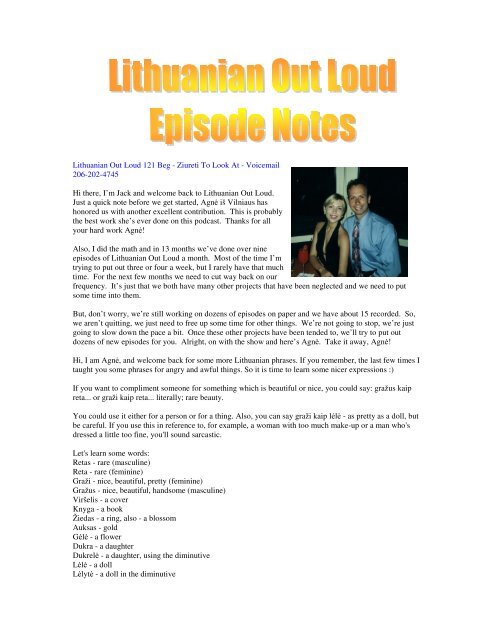
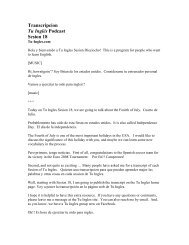
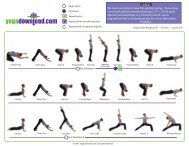


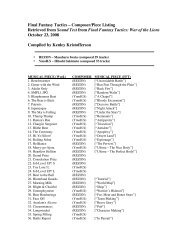
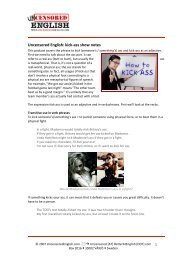
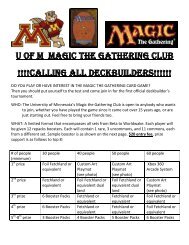
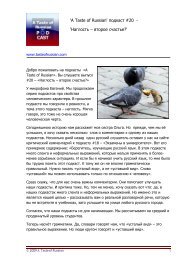
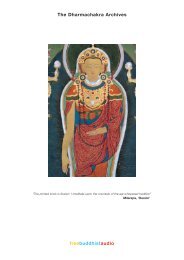

![[Las respuestas empiezan en la pagina 8 ] Tu Inglés ... - Libsyn](https://img.yumpu.com/18098853/1/190x245/las-respuestas-empiezan-en-la-pagina-8-tu-ingles-libsyn.jpg?quality=85)
